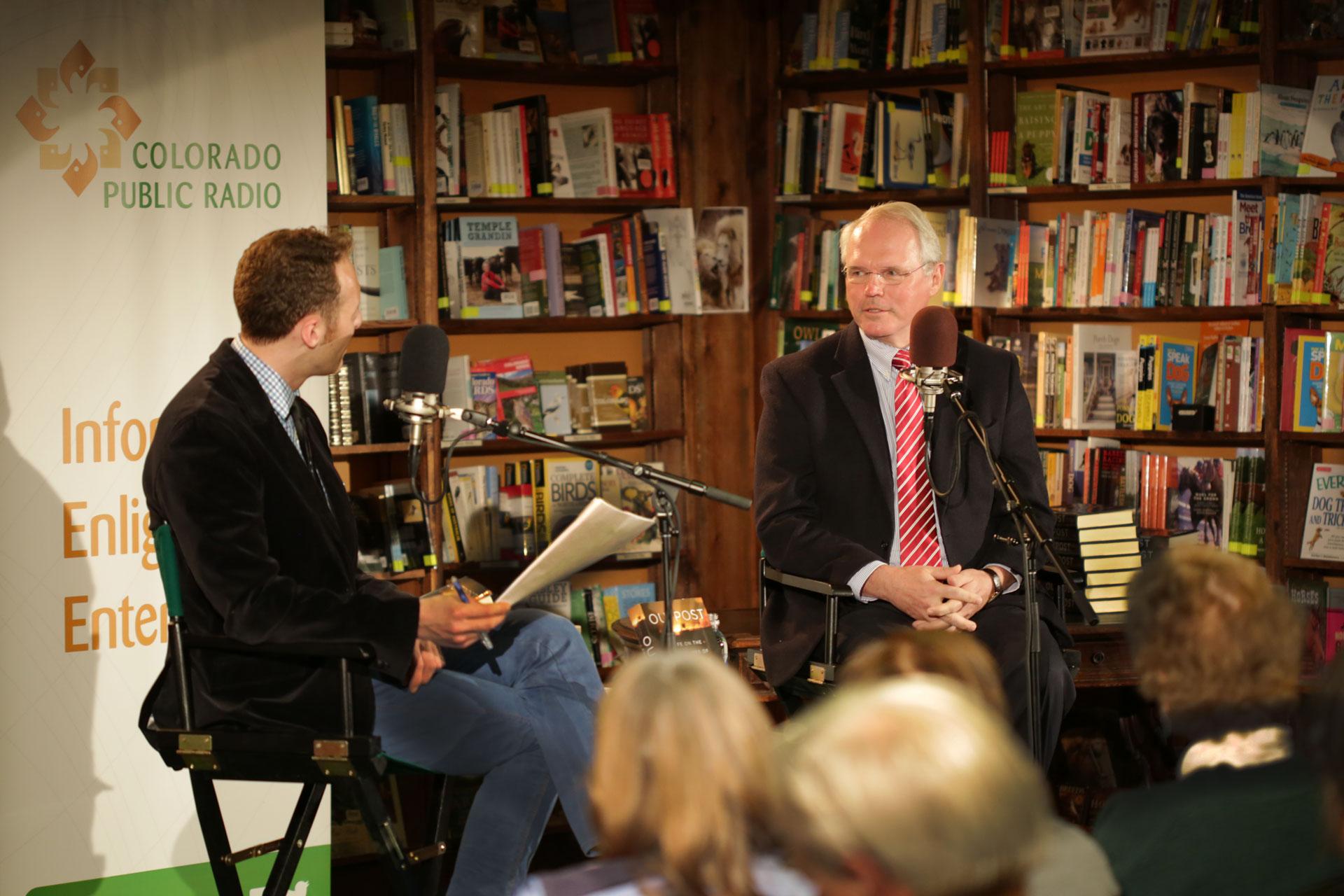
During his 33 year diplomatic career, former U.S. Ambassador Christopher Hill met some of the most revered and reviled characters in recent history, from Mother Teresa to Serbian leader Slobodan Milosevic.
These days, Hill is dean of the Josef Korbel School of International Studies at the University of Denver. He's sharing his experiences in his new memoir, “Outpost: Life on the Frontlines of American Diplomacy."
In some cases, he has biting criticisms of American politicians and of foreign leaders.
Hill spoke with Colorado Matters host Ryan Warner in front of a live audience at the Tattered Cover Book Store on East Colfax Avenue in Denver.
Interview highlights
On the U.S. invasion of Iraq:
"I worried about it. I especially worried about what comes next. Because you pick the war. Whether it’s the Civil War or any war, we’re not very good at that kind of post-conflict stuff. We’re not very good at it."
On the volatile situation in Iraq today:
"I think we’re seeing the repercussions of not understanding that we were dealing with a very complex political issue there [that] no number of combat troops could necessarily solve. This was very sectarian."
"For us essentially to whistle past that graveyard and not understand that that’s what was going on--it had gone on for a thousand years and it wasn’t going to be changed by seven years of American efforts--I think that was a failure to analyze properly the situation."
On former Vice-president Dick Cheney's role in the Bush administration:
"I really didn’t want it [this book] to be about score-settling, but for that vice-president of ours, I had to make an exception. You can think what you will about the Bush administration. A lot of problems there. But I just didn’t feel that Cheney showed the requisite loyalty that a deputy should show."
On Palestinian statehood:
"What you need to do is take the platform that you have—this Palestinian authority—and make the best of that platform. Start worrying about how you attract businesses to that platform. Start making sure that you have a police force that can keep public order in that place. If you want a state, start acting like a state."
On criticisms of President Obama for nominating ambassadors not from the foreign service:
"I think it’s justified criticism. It’s not to say that there aren’t good political appointees for ambassadors. There are good ones. But I think it’s been too much of a notion that somehow these positions should be rewarded for raising money."
"We live in an increasingly complex world out there. You know, one of the criticisms is some of these folks haven’t visited. Well, I would argue that just visiting a country doesn’t make you qualified. And so I really worry about it."









